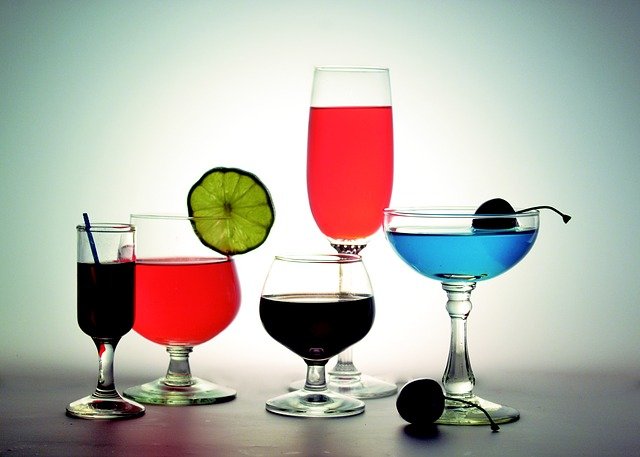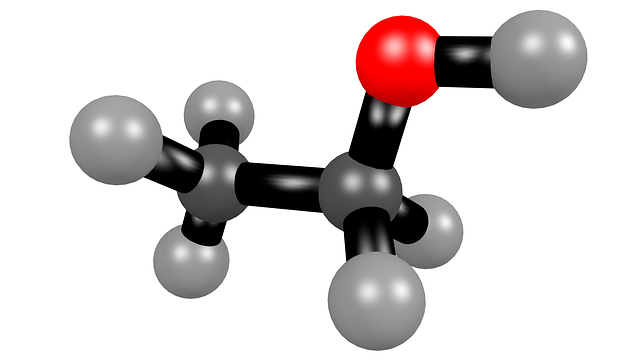Introduction:

Humans often downplay alcohol because it is “legal,” and—let’s face it— most people like “drinking;” however, the consequences of its use can be deadly. In fact, it is the 4th leading cause of preventable death (1)! In a 4-year span in the USA, it has taken the lives of over 88,000 people (1). This topic is very relevant because at least half of adults are current drinkers (that is probably a vast underestimation). With moderation, alcohol can have cardiovascular benefits... but quite the opposite when used in excess.
Now marijuana is legal in multiple states. While I am not opposed to either being legal, I can say with much confidence that alcohol is far worse when being abused. People who state otherwise probably have an emotional response to the issue or, frankly, like to drink (haha). I am not about emotional responses when it comes to health; I am about the facts.
There are many complications from alcohol abuse that transcend the physical. Those include addiction, psychological disorders such as depression, and abuse to others. In this article, I will just be covering the physical harm to the brain and other organs of the body. However, the complications that lead to irresponsible behavior and other psychological issues are very significant.
This topic encompasses many health issues so I will be making this a short series. We will begin the journey starting with the brain and working our way down the body in future posts.
How Does Alcohol Affect the Brain in the Short-Term?

Great question!
Ethanol (AKA alcohol) has a very simple structure; it’s just two carbon atoms with an attached oxygen and hydrogen. To many that may seem like a boring detail, but it is critical to its well-balanced hydrophobic/hydrophilic composition. In simple terms, the molecular structure and low weight allow it to easily diffuse to various tissues of the body. It especially favors the central nervous system (CNS).
It works on the brain in many ways, but we will just cover the big ones.
Effect on GABA Receptors and Glutamate
Alcohol has an effect on multiple neurotransmitters with GABA being a main one. Ethanol directly interacts with the GABA receptors, and therefore, increases their activity. This is achieved through the opening of chloride channels, which causes hyperpolarization (2). GABA is the main CNS inhibitor, and therefore, causes more sedation.
In contrast, glutamate is the main neurotransmitter involved in stimulating the CNS. Alcohol inhibits various receptors including AMPA and NMDA, which generally increase glutamate release (2). Since ethanol inhibits these receptors, there is less glutamate release.
Therefore, ethanol has two major ways of causing CNS sedstion: more GABA and less glutamate.
We all know that alcohol causes more sedation, but…..
What Causes the “Good-Feelings” of Alcohol?
There are a few! As mentioned above, alcohol binds to many things because of its structure. Alcohol directly interacts with opioid receptors, which increase the release of dopamine. Opioids by themselves also cause a sensation of pleasure and wellbeing. Dopamine is a neurotransmitter that can cause euphoric like effects and is the main reward system of the CNS. Studies have also shown that alcohol increases the amount of opioid receptors present as well, which then results in more dopamine release (2). This can also explain partly why people become addicted to it.
Serotonin is another major neurotransmitter that is released and associated with mood elevation and well-being. When alcohol is stopped, there is much less released, which can trigger a depressive-like state.
Now that we have discussed what is acutely happening during alcohol intoxication, we will transition to the long-term effects on the brain.
The Complications of Alcohol Abuse on the Brain

Tolerance:
When alcohol is abused on a routine-basis, GABA receptors are reduced leading to the perceived “tolerance” of alcohol (2). It simple takes more ethanol to achieve the desired effects.
Withdrawal:
This occurs due to alcohol abuse causing increased glutamate receptors (2). As a reminder, glutamate is an excitatory neurotransmitter so when alcohol reduces its release, more receptors are expressed. If an alcoholic tries to go “cold-turkey” and stops alcohol abruptly, a very high glutamate state can occur. This can lead to violent seizures and death. It is important to note that most withdrawal symptoms from other drugs like opiates are not deadly, but alcohol, benzodiazepines, and barbiturates can be deadly when stopped abruptly.
Memory Issues:
GABA has an effect on the hippocampus, the main memory center of the brain. Over time, this major increase in GABA actually decreases the mass of the hippocampus, resulting in problems remembering things after the damage occurs. This is an important point because older memories before alcohol abuse can still be recalled while new ones cannot (2).
Wernickes Encephalopathy:
Encephalopathy is a non-descriptive term and basically means that there is something wrong with the brain. This type of encephalopathy is due to a deficiency in thiamine (B1). Thiamine deficiency is common in alcoholics because ethanol directly affects the uptake and utilization (3). Thiamine is an important vitamin in glucose metabolism. Without this vitamin, glucose is used inefficiently and more lactic acid is produced from anaerobic metabolism.
Multiple brain structures can be affected by this leading to gait problems, eye movement disorders, and altered mental status. This condition is reversible by repletion of B1, but some people will develop Korsakoff psychosis, which is not reversible. Korsakoff psychosis leads to retrograde and anterograde amnesia (4).
Conclusion:

I hope everyone enjoyed Part I of the complications of alcohol. This was just an overview of how alcohol can affect the brain, and there are many more things not covered in this post. Next up, I will go into liver disease from alcohol.
I graduate medical school in 1 week! Feel free too follow me for more health/science/music posts.
Thanks again!
Sources
- http://emedicine.medscape.com/article/285913-overview
- http://www.scielo.br/scielo.php?script=sci_arttext&pid=S0104-42302015000400381
- http://emedicine.medscape.com/article/794583-overview#a5
- http://emedicine.medscape.com/article/794583-clinical
*All photos were from pixabay.com are are public domain. Links provided below images.

Another nice post, well cited and well explained for both the pharmacology of the effects and complications from alcohol on the body. Good to see you @tfeldman. One week to go, I can almost officially call you Dr.
Downvoting a post can decrease pending rewards and make it less visible. Common reasons:
Submit
Thanks for reading! Man, its going to be weird being called Dr. at first but also an honor. Liked the last couple of posts that you did too. We need more science articles....seeing a bit too much on just money lately.
Downvoting a post can decrease pending rewards and make it less visible. Common reasons:
Submit
Of course! I get the Dr. thing...I'm only a PhD, but its still weird for me when people call me Dr. It hasn't gotten any less weird as years have passed.
Yeah, I am writing as often as I can find the free time to assemble something and do it justice. Hopefully as communities come on line we can get more science writers to join up.
Downvoting a post can decrease pending rewards and make it less visible. Common reasons:
Submit
Sounds good man. Keep up the good work.
Downvoting a post can decrease pending rewards and make it less visible. Common reasons:
Submit